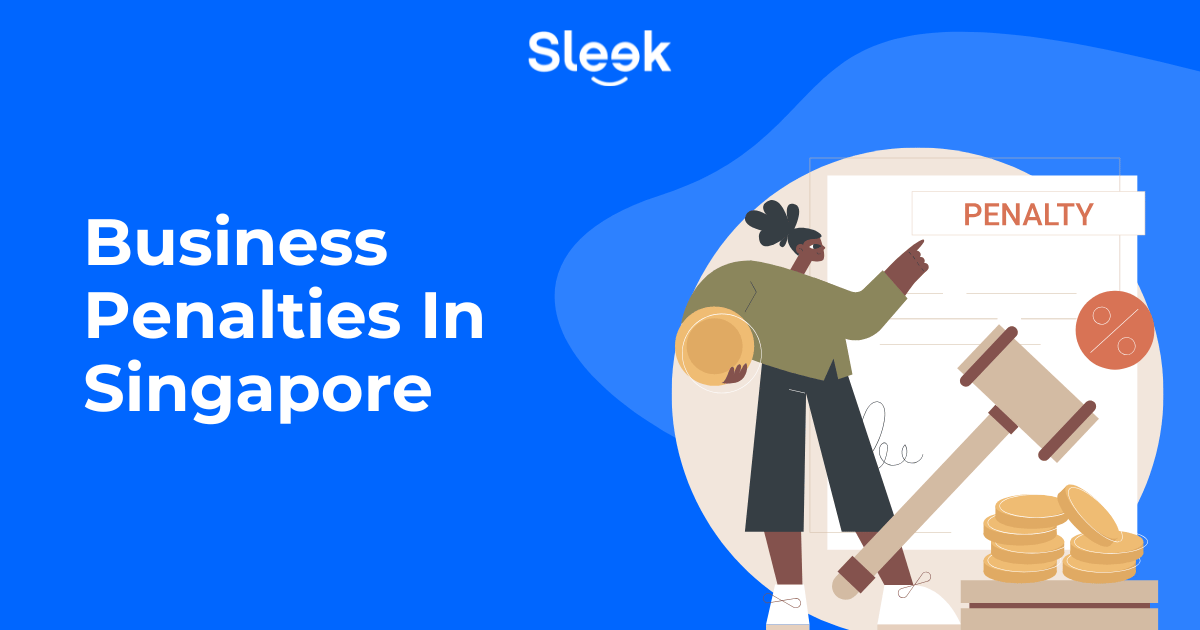An introduction to AGMs in Singapore
6 minute read
One of the fundamental compliance requirements when you have a company in Singapore is to hold your AGM, or Annual General Meeting. This allows all of the company’s shareholders the right to take part in the decision-making process of the company.
This guide will also explain the steps you need to take to stay compliant this annual return season.
Overview:
- What is the purpose of an AGM?
- What happens at an AGM?
- Preparing your financial statements
- What if my financial statements are not ready in time?
- What if my company is dormant?
- When should a company hold its AGM?
- Extension and Penalties
Update as of May 2019:
The Companies Act has been amended with effect from 31 August 2018 and private companies are automatically exempted from holding AGMs if they send their financial statements to members within 5 months after the FYE.
However, this is subjected to the following 3 safeguards:
1. A member who wishes to request that an AGM be held must notify the company to hold an AGM not later than 14 days before the last day of the 6th month after FYE
2. Directors of the company must hold an AGM within 6 months after FYE if notified by any one member of the company to do so
3. Private companies must hold a general meeting to lay financial statements if any members or auditor requested for it not later than 14 days after the financial statements are sent out
Do reach out to our support team at Sleek at [email protected] with a status of your company’s financial statements preparation. We can then assist to advice on the next step on a case to case basis. Ideally, this should be completed within 5 months of your FYE.
What is the purpose of an AGM?
A company holds an AGM mainly to:
- Present the company’s financial statements
- Seek approval of other business transactions of the company
What happens at an AGM?
Presenting the company’s financial statements
The company has to present its financial statements to all shareholders during the AGM. The financial statements should provide a “true and fair” assessment of the company’s financial performance during the year. After the financial statements are presented, the shareholders have to adopt and approve the financial statements.
Privately held companies have 6 months from the end of the fiscal year end to present its financial statements at its AGM.
Approval of other business transactions of the company
The company also approves other business transactions of the company during an AGM. These are a few of the business matters that require shareholders’ approval at the AGM:
- Dividend declaration
- Retirement and appointment of directors
- Appointment of auditors
- Authorization to issue shares
Preparing your financial statements
- When: After your financial year ends
- Example: Financial statements to be prepared between 31 December and 30 June
One of the most important things you can do to have a smooth annual return process is to prepare your financial accounts promptly after your financial year end.
Many subsequent steps depend on having those accounts ready. You need to have your financial statements in order to have your AGM; and you need to have had your AGM before you can file for your annual return.
In most instances your financial accounts can remain unaudited (read our guide on IRAS obligations to find out if you need to have your accounts audited). If you do need help, reach out to us.
What if my financial statements are not ready in time?
In the event that the financial statements are not ready for the presentation at the AGM and annual return, your company secretary can apply on your behalf for an extension of time. There are costs for filing an extension, but these are reasonably minor.
What if my company is dormant?
You still need to have your AGM and file your annual return. All dormant companies will still need to prepare its accounts in accordance with SFRS (Singapore accounting standards), convene its AGM physically or by written means, and complete annual return filings with ACRA within prescribed time limits.
When should a company hold its AGM?
A company has to hold its first AGM within 18 months from the incorporation date.
From then onwards, the company has to hold the AGM every year, with the period between two AGMs not exceeding 15 months.
AGM: What to take note
Notice of meetings
The company issues a notice of meetings to all the board members, shareholders, and officers of the company. The notice has to contain the date, place and time of the meeting, business items that the company has to discuss, any special resolutions on the agenda (and the voting thresholds required for approval), and any rights the recipient has to appoint a proxy.
This notice needs to be sent a minimum of 14 days before the AGM (in the case of business requiring the passing of an ordinary resolution), 21 days before an AGM where special resolutions will be used, and 28 days where there is a special notice requirement.
A company can give a shorter notice for its meetings if the members who are entitled to attend and vote at the meeting agree to it. It is a responsibility of a company’s company secretary to draft and send the notices of these meetings. These notices are often done online – however, the constitution of the company needs to specify the mode of delivery if it chooses an online method as the default mode of sending notices.
Quorum
The quorum of a meeting refers to the minimum number of present members that an AGM requires to be valid. In Singapore, the quorum involves a minimum of 2 members to be present personally unless the constitution of the company states otherwise. The company cannot transact any business at the meeting unless it fulfils the quorum requirement.
Proxies
If a shareholder is unable to attend the AGM, he can appoint a proxy to attend the AGM and vote on his behalf. The proxy does not need to be a member of the company, and a member can appoint up to 2 proxies to attend the AGM.
The notice of the meeting circulated to the members of the company should clearly state the right of members to appoint a proxy. A proxy form shall be an attachment to the notice of the company.
Special notices
Sometimes the shareholders may wish to propose a resolution at a meeting, such as
- Removal of directors and
- Removal of auditors from their office before their term of expiry.
When that happens, the shareholders will need to provide a special notice of the resolution to the company 28 days before the date of the AGM. The company will send this notice to all members at least 14 days before the meeting.
The aim of sending a special notice is to invite special attention to a particular resolution that shareholders wish to propose in the upcoming meeting.
Shareholder resolutions
Shareholders of a company make decisions by passing resolutions. There are two types of resolutions, ordinary and special resolution. Unless your constitution says otherwise, the passing of the ordinary resolution is usually sufficient.
Ordinary resolution
Ordinary or routine business matters require the passing of an ordinary resolution which is by means of a simple majority of at least 50%. Most of the company decisions need an ordinary resolution. These are some examples of matters that require the passing of an ordinary resolution:
- Dividend declaration
- Appointment and remuneration of auditors
- Electing directors in place of retiring directors
Special resolution
Unique business transactions of the company require the passing of a special resolution using a majority of at least 75% in favor of the resolution. This resolution is for major business decisions or changes to the company.
Due to the significance of the matter, more shareholders need to approve the resolution.
Following are a few examples of matters that require the passing of a special resolution:
- Alteration to clauses in the constitution
- Reduction in the share capital of the company
- Change of company name
Written resolutions
Written resolutions are resolutions in which the company does not pass at a shareholders’ meeting, but by circulating the proposed resolution to shareholders for their approval.
Private companies use this method of passing resolutions in writing.
A private company can pass an ordinary or special resolution by written means instead of holding a shareholders’ meeting. The company circulates the resolution to its shareholders for approval. The majority required for the approval on the passing of the resolution is on the same basis as an ordinary and special resolution.
Extensions and Penalties
If a company cannot hold an AGM in time (this is often due to a delay in preparing financial statements), they can ask their company secretary to file for an extension of time with ACRA, up to a maximum of 2 months. If a company does not meet its deadlines to hold their AGM, or the accounts laid at the AGM were not updated, the company and its company directors are subject to financial penalties by ACRA. Not getting your annual return in on time can leave you with penalty fees as well.
Next steps
Don’t fall foul of your ACRA obligations to hold an AGM – we can help you with the process around your AGM. We’re always available for a chat: contact us to get in touch.
You might be interested in reading about:









